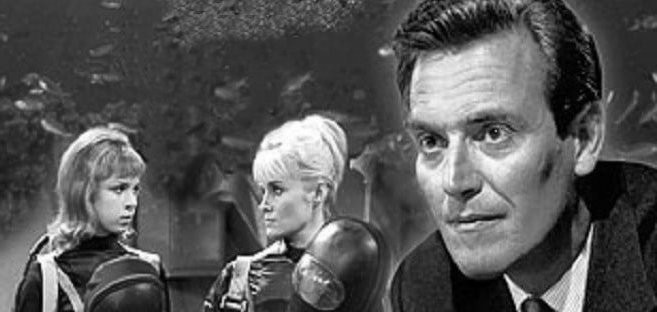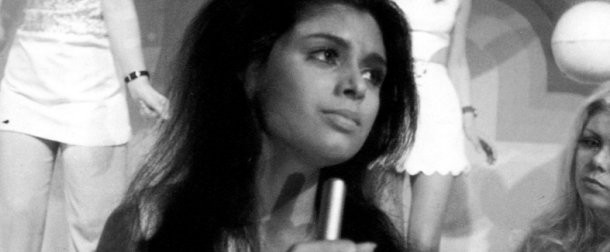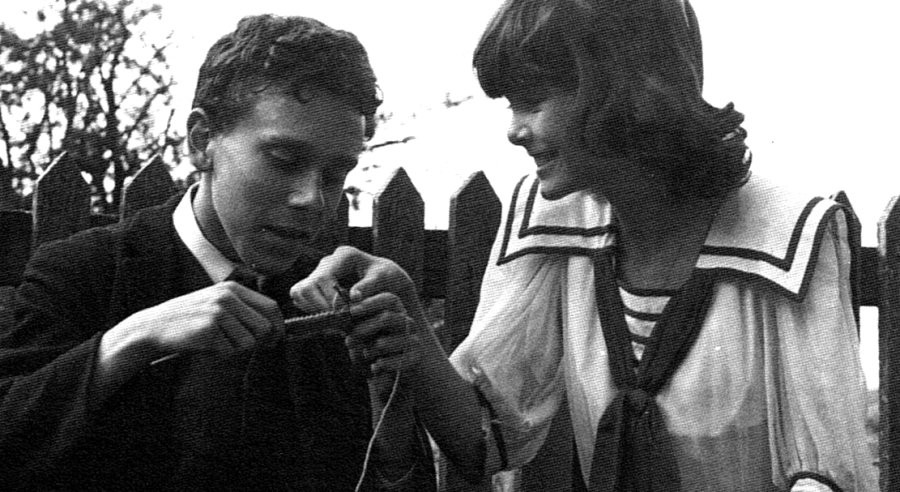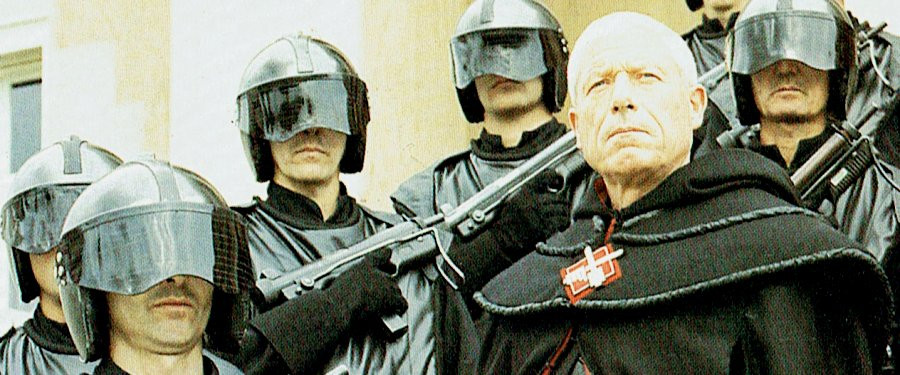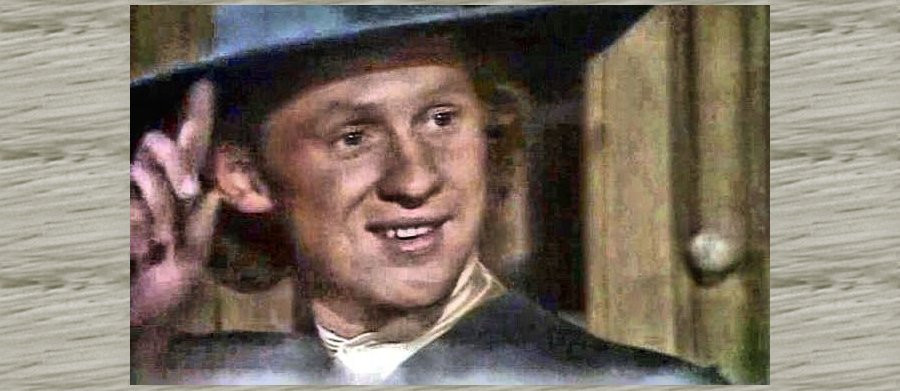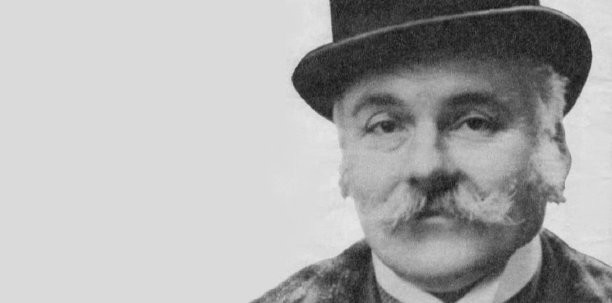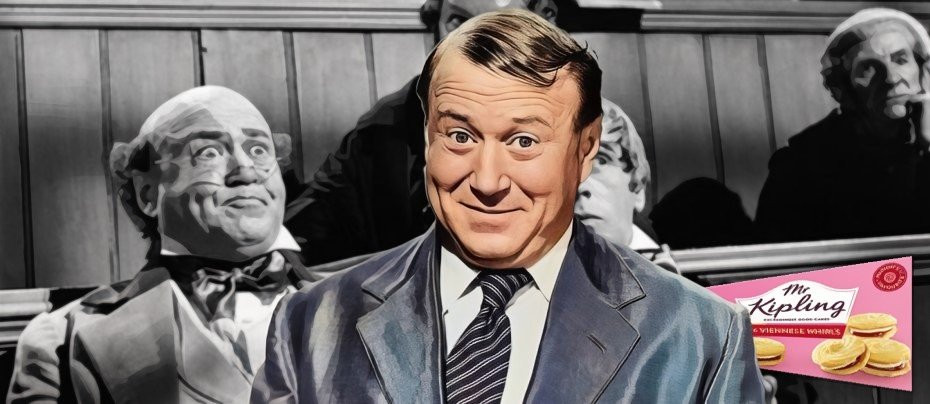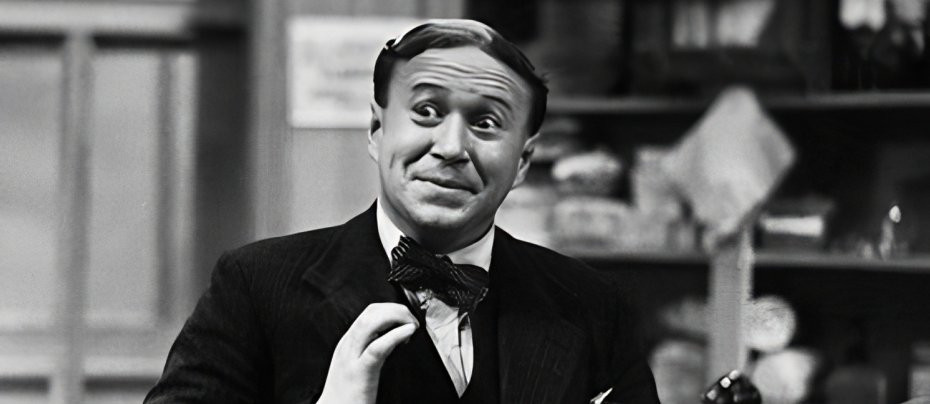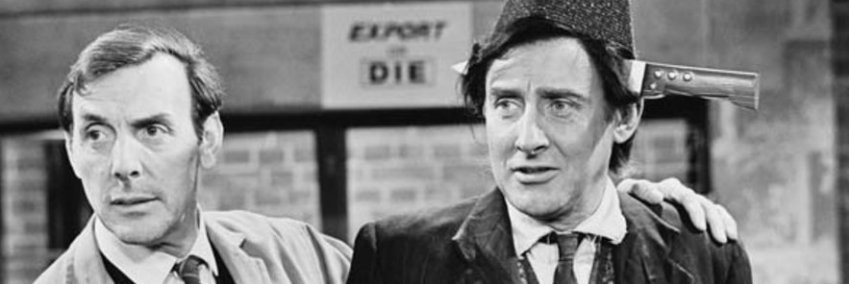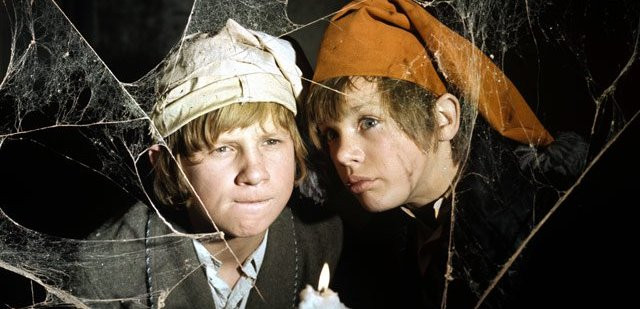
The Flaxton Boys
1969 - United KingdomThis fondly remembered epic children’s drama created by Sid Waddell, set over four series, each featuring a different generation of the Flaxton boys, was inspired by a lunch-time meeting in a pub and an offer that an upcoming writer couldn't refuse.
The story begins in 1854 at Flaxton Hall, a castled house near the Yorkshire village of Carliston, between Harrowgate and Hull. With his dad, Captain Andrew Flaxton, reported missing in action in Crimea, Jonathon Flaxton and his mother, Lucy, have inherited the run-down property with creaking battlements and a suitably spooky atmosphere that make this the perfect diversion for the youngster and his friend, Archie Weekes, as they go exploring.
Rumours abound that Flaxton Hall is hiding a great treasure somewhere within its ivy-covered walls and this soon attracts the unwanted attentions of local no-gooder, Sir Peregrine Stilgoe and three hired convicts. There’s also the mysterious ghostly figure of the woman in black who stands among the graves. However, when Captain Andrew returns home the villains are suitably dispatched and the treasure is soon discovered thereby securing the family’s future.

In 1970, the series returned but although the setting was still Flaxton Hall the year was 1890, and a new generation of Flaxton Boys had taken up residence. Jonathan Flaxton had disappeared from the family home in mysterious circumstances twelve years before and villainy is afoot as the ward of the disgraced Sir Peregrine, Tarquin Stilgoe plans to take over the hall in order to release the coal reserves beneath it. The story includes a number of other elements such as a conflict between two Chinese Tong classes, the escape of a young servant girl and a lovable rogue by the name of Barnaby Sweet.
The 1971 series catches up with the Flaxton’s in 1928. Young Jonathan returns from school for the summer holidays with his pal, William Pickford, only to discover that the now derelict Stilgoe Lodge is to be turned into an orphanage. The boys offer their services to help prepare the old building but find that workmen are being scared away by tales of hauntings. It’s not long before they discover a pair of forgers by the names of Osborne and Grafton. In this adventure the boys are aided by Barnaby's son, Benjamin. Benjamin returned for the final series, made in 1973 and set in 1945. Mathew Flaxton befriends Terry Nichols, an evacuee from London with no home to return to. During the war Flaxton Hall had been used as an Army camp, but now the troops are preparing to leave-but there’s still a question of POW's and spies.
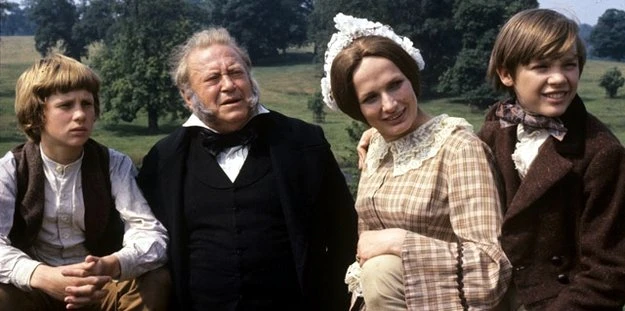
Sid Waddell, who originated the series, had originally won a scriptwriting competition run jointly by the BBC and the Northern Arts Association whose members included Tony Garnett and Ken Loach. From this, Sid offered the BBC a comedy series but it was rejected. He eventually started his career in television as a researcher and scriptwriter at Granada TV before joining Tyne Tees as a producer. Then, in 1968 at the age of 27 Sid joined Yorkshire Television as a news producer in the same week that Richard Whitely joined the station. His boss at YTV was the legendary Donald Baverstock. "Baverstock was the epitome of creative vitality with ideas bursting from him like a volcano" Sid told Television Heaven. "He was a genius and his impact on the BBC was incalculable."
In the early sixties Baverstock, as controller of BBC1 had set up various committees to report on the BBC's performance. As a result of these reports sweeping changes were made at the corporation and new dynamic producers and programme makers were bought in. Always a great supporter of children's programmes Baverstock was keen on one particular idea by Canadian born Head of Drama, Sydney Newman: Doctor Who. In 1963 Baverstock also introduced the famous globe logo that would identify the channel for the next 39 years. But in 1965, Baverstock and the BBC fell out and he resigned, quickly becoming involved in the establishment of ITV northern franchise holders Yorkshire Television, becoming its first Director of Programmes and going on to oversee the creation of popular hits such as the soap opera Emmerdale Farm (1972), which still runs nationally to this day.
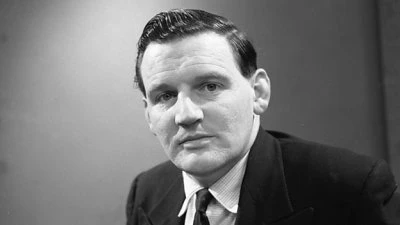
"One of the things that Donald Baverstock used to do," remembers Sid Waddell "was go to ITV and boast that he had shows that didn't even exist!" One Friday lunchtime, after an early morning meeting with Lew Grade and the other heads of ITV, Baverstock rolled into The Queen pub at the back of Yorkshire TV. "It seems as though Donald had told Lew Grade that he had a historical children's drama series about two boys. Well, I was sitting in the pub and Donald said to me "I'll give you a hundred pounds if you can come up with a script by Monday morning.' Well, as I was only earning thirty quid a week at that point I couldn't refuse the offer of just over three weeks wages in one go."
Sid went to work immediately drawing inspiration from nearby Harewood House, home to the Queen's cousin, the Earl of Harewood. Being a big Walter Scott fan, he came up with an adventure story set in a run-down stately home, set in the time of the Crimean War and featuring con men, hidden treasures and clues in the form of cryptic verses. He called the story 'The Boys of Nightingale Hall.' Sid handed his script in first thing Monday morning. By 3 O'clock that same afternoon Baverstock sent for him and said "Can we have a second episode by Wednesday?"
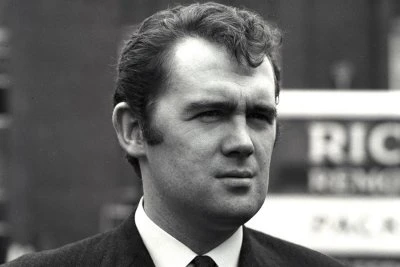
Later that week Sid set off with YTV's head of children's programmes, Jess Yates, to look at houses for location filming (the eventual location chosen was Ripley Castle near Harrowgate). Yates was to be executive producer of the series and Robert Cardona the producer. David Crane was the script editor and shared the writing credits on the first series of 13 episodes with Sid, Don Houghton and Barry Cockcroft. However, Sid nearly didn't get the credit he deserved for the series. "Jess Yates refused to give me a credit as the originator of the series. So I waited until he went away on holiday and took out the girl whose job it was to do the credits at the end of the show. I got her drunk and talked her into adding my name as originator. When Jess found out he was livid, but by that time the series had gone out and there was nothing he could do about it."
As for casting, Sid knew instantly who he wanted in the series. "I'd been to the Geordie premier of the film Kes with Tony Garnett (who produced the film) and knew instantly that David (later Dai) Bradley would be perfect for the series. I went back and told Robert Cardona that we had to have him. There was one other change before the series went out-the title. Donald liked 'The Boys of Nightingale Hall' but he wanted something with what he called 'consonantal bounce', so the title was changed to The Flaxton Boys.
Sid only wrote one other episode and that was for series two. "By that time I'd lost interest. I never actually planned to be a scriptwriter and was more interested in producing science and documentary programmes." However, The Flaxton Boys has been good to him over the years and up until about ten years ago he was still getting royalties from places as far as Taiwan.
But Sid wasn't done with children's television just yet, because in 1986 he wrote Jossy's Giants a fondly remebered children's sitcom about a Geordie wide boy who had played for the Toon and ran a kids’ team. The idea for this series came to Sid when his son Daniel joined a local team based in West Leeds. They were called the Churwell Lions, but despite their nickname - 'they didn’t exactly roar'. The series was hugely popular. "I did ten episodes in all and when one was repeated in 1988 it got 6.7 million viewers."
In 1976, Sid went to the BBC and became its TV commentator when the first World Darts Championships hit the screens in 1978. He remained with the Corporation for a further sixteen years maintaining his position as lead commentator and creating a unique persona into the bargain. His "gift of the gab" earned him great praise amongst fans and fellow commentators. "Bristow reasons ... Bristow quickens ... Aaahhhhh, Bristow." In 1994, Sid joined Sky Sports following the Professional Players, whose own company, the Professional Darts Corporation, had struck a long-term deal with the broadcaster. He is remembered today as the Darts Broadcaster supreme and had broadened out to commentate on pool and even clay pigeon shooting. He even found time to write over eleven books, mostly biographies on his favourite sportsmen.
Sid Waddell passed away on 11 August 2012.
Seen this show? How do you rate it?
Seen this show? How do you rate it?
Published on December 12th, 2018. Written by Laurence Marcus (12 July 2006) With special thanks to Sid Waddell for Television Heaven.


